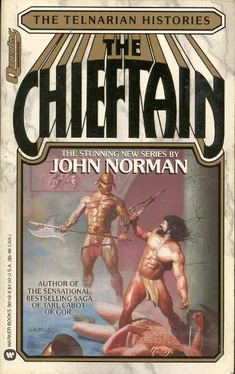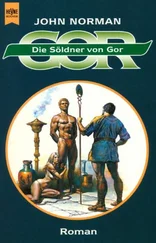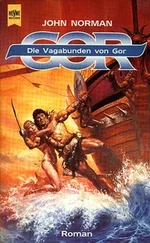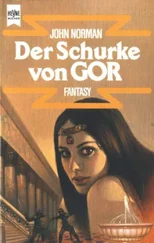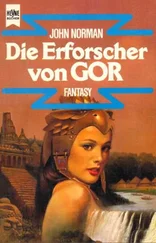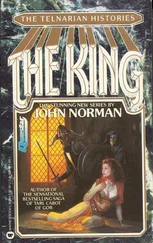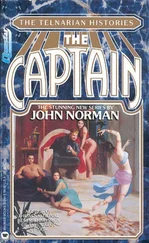“Birds,” said Hunlaki.
Mujiin looked at him, expectantly.
“Even,” said Hunlaki.
“Done!” said Mujiin, and they both turned their mounts. The tip of Mujiin’s silver-tipped lance traced the arc of the gambling field, earth and sky.
Hunlaki sat back in the saddle.
Within the circuit traced by the tip of Mujiin’s lance, as though looking through a window, one could detect three birds.
They then turned their mounts, again, to watch the figure stumbling toward them.
“One thrust?” asked Hunlaki.
“Ten,” said Mujiin.
In such a way, usually with prisoners, loosed in an open field, the Heruls honed their skills with the lance, skills which could mean life or death in battle.
“He is only a boy,” said Hunlaki.
“Ten,” said Mujiin, “and the tenth to the heart or throat?”
“To the heart,” said Hunlaki. The thrust to the throat was a difficult one. It required often to be followed by at least one or two further thrusts. Death came usually more quickly, more mercifully, with the thrust to the heart.
“To the throat!” insisted Mujiin.
“To the heart,” said Hunlaki.
“There is less sport then,” said Mujiin.
“It is only a boy,” said Hunlaki.
The lad had stopped now, in the tracks left by the column, an hour or more in advance of them.
The two riders, Mujiin and Hunlaki, began to ride slowly toward the boy. Mujiin did not wish to frighten him.
Perhaps two matters should now be made clear, one having to do with the raid across the Lothar, and the other with Hunlaki’s lack of ease.
The object of the raid, or invasion, if you like, and the crossing of the Lothar, was the extirpation of a people, the extermination, the uprooting, of an entire folk. The strategic point of this action was perhaps to secure the plain of Barrionuevo, east of the Lothar, for the flocks, and the herds, of the Heruls. The Heruls, you see, as I have mentioned, were a nomadic people. To be sure, as has been made clear earlier, many of the Heruls’ intended victims had eluded them. Some had successfully resisted them in the homely forts within the villages, and many others had managed to slip away, into the forests, into which the Heruls, and the Hageen, if they were truly with them in this action, did not care to follow them. It is very difficult to obtain numbers, or percentages, in matters of this sort, but it has been conjectured variously that some seventy to ninety percent of those attacked by the Heruls in this action, both west and east of the Lothar, but more to the west, were killed or taken prisoner.
Mujiin and Hunlaki now stopped, some fifty yards from the boy, who had also stopped. He backed a bit away from the black track of the column, onto the snowy grass. There was better footing there.
Fifty yards is a good charging distance. It gives the horse time to obtain a high speed, if that is desired, and it is long enough, if one proceeds more cautiously, to assess the likely movements of the target, to provide an opportunity for adjustments in the advance.
The people who had been attacked were a forest people, and related by blood to another people, who had once been a forest people.
A historical note is in order, for without it much of what follows will be more difficult to follow. Long ago, on a world far distant from this one, that on which Mujiin, Hunlaki and the lad are now, there was a given people, let us call them, for the time, the tribes of the forest, the forest being one such on that far world. These people were barbarians, surely, that must not be denied, merciless primitives with rude ways and savage customs. They lived in small villages, established in clearings within the forest. They were hunters and farmers. These people, these tribes on that far world, had, it was claimed, once resisted even the might of Telnaria, and, within the darkness of those vast, leafy forests, with smuggled arms, supplied by outer worlds, had more than once trapped and massacred expeditionary forces, the loss of which the empire at the time, pressed on many sides, could not well afford. Eventually, as the forces of the empire conquered many enemy worlds, of the sort so often sniffing and prowling at its frontiers, so often intruding across them, it had time to return its attention to the tribes of the forest. Various wars, over generations, took place. These tended to be bloody and merciless. There were diverse alliances and such, but, in the end, the tribes of the forest, as we have called them, and there were several such, were overwhelmed. Various treacheries and betrayals, and such, figured in these matters but, clearly, such tribes, isolated, deprived of support, sometimes divided against themselves, with their inadequate resources and armaments, were no match for the empire. In some cases, habitats were literally destroyed. The piteous remnants of the tribes, largely disarmed, were scattered about various worlds, in some cases to render various services to the empire, in particular, to supply selected forms of produce.
These remnants, it should be noted, did not have the status of federates, barbarian peoples permitted to remain within the domain of the empire, for which privilege they were expected to supply the empire with given quotas of recruits for the auxilia, the auxiliary forces on which the empire, eventually, would come so much to rely, this tending to compensate for the gradually increasing disinclination of citizens to concern themselves with military responsibilities. Some of these barbarians would come even to high offices in the regular forces. The military of the empire, it might be noted, once raised largely from its own militias, a universal military service once being a requirement for citizens, was now much separated from the common citizenry. It was now, on the whole, for most practical purposes, a professional mercenary force. It was now largely independent of the senate and state. Its political power was considerable. Its favor had to be courted. It was capable of making and unmaking emperors.
The boy stood now in the snowy grass, grasping the staff. He seemed half-starved. He could not stand straight. His clothing, tattered, mostly in rags, blew about him, whipped in the wind.
Some remnants of two of the tribes of the forest had been brought to this world, and the boy was of one of these. The Heruls had, only months ago, in the spring, and early summer, met the other of the two tribes in lengthy, and terrible, battle, in a series of engagements which had taken more than five weeks. That had been war. For that other tribe, you see, had had horses, and had changed their way of life to resemble that of the Heruls, changing to riders, to herdsmen. It was inevitable that they should clash, and they had, first, far to the east, even beyond the heights of Barrionuevo, where the plains of Barrionuevo began, and then later in the north, on those plains themselves. Hunlaki admired the riders, though the Heruls, in their vaster numbers, with their better mounts, bred for centuries for the chase and war, their superb skills, of horsemanship and war, honed by centuries of revered tradition, their swiftness, their forced marches, their encirclements, had defeated them. The king of that tribe had been slain in battle. His queen, heavy with child, with certain others, had eluded capture. It was not known where she had gone. No drinking cup had been made from the skull of the defeated king. Rather he had been burned on a pyre, worthy of a Herul chieftain. Hunlaki, and others, on horseback, had lifted their lances in salute as the smoke had wafted upward in the then summer sky.
“To the right forearm,” said Mujiin, kicking his heels back into the flank of his mount.
In a moment Hunlaki heard the boy’s sharp cry of pain.
There is some controversy concerning the name of the tribes of the forest, several of which had been placed on various worlds, two on this very world. ‘Vandals’ may be the original name. That is not known for certain. It is conjectured by some that, considering the current connotations of the name, they may have received it only later, in the writings of their enemies. It may, however,
Читать дальше
